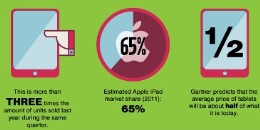5 Ways Millennials Are Different Because Of The Internet

The millennial generation, otherwise known as “Generation Y,” born between the years 1981 and 2000, are the most Internet-savvy generation in history, having grown up in the formative years of what has evolved into the World Wide Web.
Although it might be an exaggeration to say that they eat, breathe and sleep the Internet, social networks and connectivity are no strangers to millennials, as they bring their smartphones and tablets everywhere, including to the bathroom and even to bed. According to this study, Millennials spend 15-20% more time on the internet than the majority of the population.
Because of this inbred familiarity with computers, operating systems and a new techno-lexicon, members of this generation can sometimes be more comfortable conducting transactions — both social and financial — online instead of in real life. They are the generation most likely to participate in electronic banking, stock trading, shopping and wayfinding. In fact, for them, the phrase “in real life” is the basis for a new acronym, “IRL,” that they contrast with the online world, which they know as “URL,” also known as the acronym for Uniform Resource Locater, or what people use to type websites into an Internet browser.
1. Alias Identities
The extremely heavy use of social media amongst this generation has established for many of them a second identity, or avatar, on social networks that is inseparable from who they are as people. The connections made with digital assets — photos, videos, music collections, games and apps — via these online avatars expands their digital representations and abilities beyond the scope of what’s visible or tangible in the “IRL” space, much more so than it does for previous generations.
2. Digital Communication
Digital communication that can be served, forwarded or accessed via the Internet — be it text messages, email, voice and/or video clips — is a customary way this generation connects with one another. Even if the device they end up using for communication happens to be portable, as is the case with a smartphone or tablet, or remote, as with a webcam at a friend’s house, they accept that such communication is part and parcel of the world we live in today. For them, Internet-based communication is not merely an add-on to an “old-fashioned” or analog world. These days, communication is more often found through “the cloud” than through face to face interaction.
3. Demand of Entertainment, At All Times
The universe of online media that Millennials are able to experience through channels such as YouTube, Netflix, Hulu, Soundcloud and others has accustomed them to on-demand services and entertainment options that are far beyond what previous generations dreamed of. These channels are often accessed with the ease of tapping a mouse or speaking voice commands. The Millennial generation can be often stereotyped as “demanding”. This could obviously be due to the fact that this generation has never had to experience going without their needs being met, and they have always had access to entertainment at the tips of their fingers.
4. Attention Span
Because of this “instant-on, instant-off” capability and the brevity of so many of the video clips and short features that they watch, attention spans have been drastically shortened. Hyper-fast editing that is almost too quick for the mind to follow is a hallmark of programming created for millennials, and the Internet is nearly always its primary delivery method whether it’s being streamed to a set-top box, played on a laptop screen or being downloaded as a Torrent file to be watched later at a user’s convenience.
5. Interactions
The wide range of channels and online options means that this generation’s tastes are more diverse than ever, and national or cultural boundaries are more porous than they’ve been in the past. Either as music fans or sports fans, the members of this generation want to do more than just watch their programming; they want to interact with its stars and commentators via Twitter, chat rooms, social media, user commentary, reviews and fan messages.
From a distance, it might seem that this generation suffers from an “Internet addiction,” and it’s true that among their ranks there are those who likely spend too many hours in front of an electronic screen. Recently, in places like South Korea, authorities have had to limit the use of computers, gaming devices and Internet cafés for some users. But by and large, this generation is only making use of the new medium so intensely due to the power and newfound knowledge it affords them. With time, the balance between “IRL” and “URL” will likely even out, with the latter increasingly serving the former rather than vice-versa.
Would you like to receive similar articles by email?





